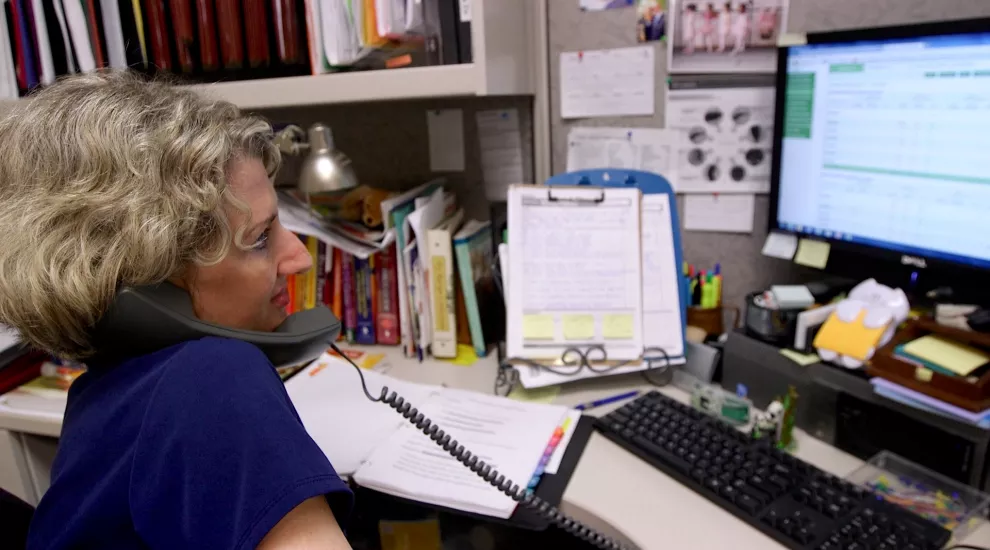
“Diabetes is not a disease that you manage in the clinic alone. You see a doctor maybe every 3 months, and you see them for about 10-20 minutes. That’s not going to take care of your diabetes. You need to take care of it at your own home,” says Dr. Leonard Egede with the MUSC Center for Health Disparities Research.
He is the initiator of a diabetes management initiative that aims to help people live healthier lives via home telehealth. Home telehealth is a service that gives the clinician the ability to monitor and measure patient health data and information over geographical distances.
Patients in the program receive a “two-in-one” device that allows them to measure their blood pressure and blood sugar levels at home once a day, as Dr. Egede explains. The device is connected to a modem that transmits the readings through the Internet to a central server. From there, the nurses are able to access the readings in real time.
“Not only do I know how many times they took their blood pressure and tested their blood sugar levels, but also what time in the day they did it,” says the Research Nurse Coordinator Caroline Wallinger. “It’s important to be able to see numbers over a span of time because that’s when you start to notice trends.”
During a weekly call, the nurses discuss the readings with patients and go over strategies that can help them live healthier lives. Medications can also be adjusted accordingly.
“Diabetes is something that you have to work at every day,” Wallinger says. “The only way you can make decisions on how to best care for your diabetes is by testing, so you know where you are at. It’s not something that you can really guess.”
In South Carolina, the diabetes rate increased from 5 percent to 12 percent between 1996 and 2014, according to the America’s Health Rankings. At the national level, diabetes is the U.S.’s 7th-leading cause of death and contributes to heart disease and stroke.
“For whatever you enjoy doing, being healthy is very important for you,” Dr. Egede remarks. “Your health improves your mood, you are better able to work, and take care of your children.”
For Dr. Egede, it is important to recognize that home telehealth is not as difficult as people make it out to be.
“Many people are worried about what happens to them, if they will still be able to see their regular doctor, and physicians are worried that patients will not come to their appointments, but that’s not the case,” Egede explains. “If we do home-monitoring, they still keep their regular appointments. This just allows us to get more information in real time faster than the traditional way of doing it.”
This type of treatment via telehealth offers comfort and convenience to the patient, and also a strong support system, Dr. Egede explains. But in the end, Dr. Egede says, it is really up to patients to decide how they want to take care of their health.
“I tell most of my patients, you are in charge. I’m just here to help,” he says.
FOR MORE INFORMATION ON TELEHEALTH, VISIT THE SOUTH CAROLINA TELEHEALTH ALLIANCE
DO YOU HAVE A TELEHEALTH STORY TO SHARE? E-MAIL US AT MYTELEHEALTH@SCETV.ORG

